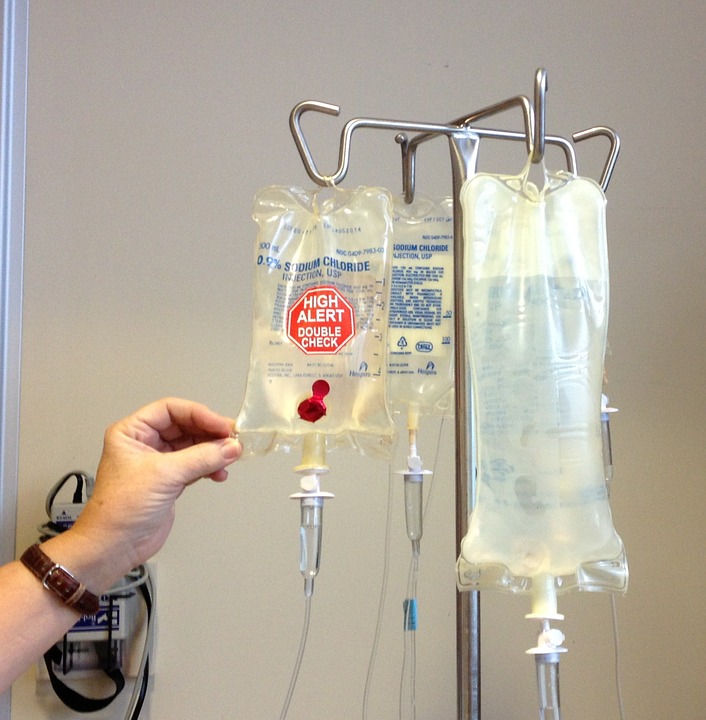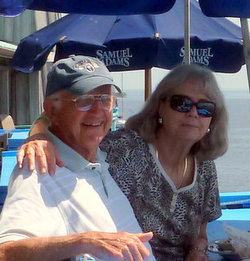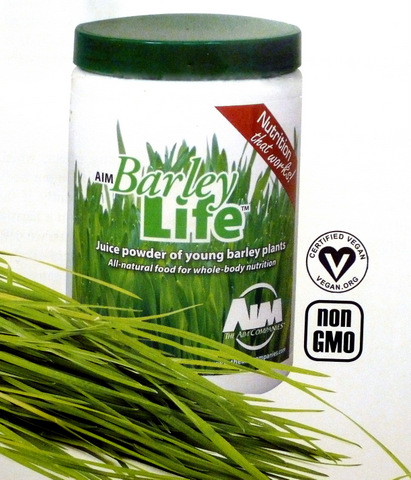What Will You Ask the Doctor?
I had no clue what to do or what to ask the doctor about when I was diagnosed with prostate cancer in 1999. I was in a state of shock and felt a lot of uncertainty for the future.
When the words "you have cancer" reach your brain...your whole life changes. In this emotional state you are easily influenced by the professional recommendations of the doctors or other people that you trust. I must admit, you do not function well at this point.
Which Treatment Will It Be?
The usual recommendation from the doctors will be either the official protocols of surgery, radiation or chemotherapy. These modalities are always given as a "TREATMENT", not a cure.
If you become cancer free, and a few do... it is usually in spite of the treatment.

Cancer is systemic. At the time of diagnosis it has probably been growing in your body for 10 years or more. Removing or killing it with treatments will not solve the long term problem. For most people it will come back because it never left. The cancer will just reappear sometime later.
The medical cure for cancer is defined as a patient that survives for 5 years after diagnosis and treatment. If a person dies of cancer one day after the 5 year plan, he (or she) is considered cured of cancer and also dead from it at the same time. No other disease in history has had a definition like this. You are either CURED of the disease or not.
Looking for Answers!
I began my search online for answers, and page after page gave medical answers that were associated with treatments. Very few websites offered any hope of cures. "Cure" was not part of the treatment of cancer.
I'm not saying that I have all the answers, but the following questions that you could ask the doctor may throw some light on the subject. You may find that your doctor gets very upset by questioning his methods. Don't be a victim. Do your research and follow the path that works for you.
Hope for Cures of this Dreaded Disease
Today there is lots of information on practitioners outside of the traditional medical school formats that offer hope for cures of this dreaded disease. Take your time and do not rush into any program. Most cancers are slow growing. You did not get cancer from anything you ate or drank last week...or last month.
In the beginning of a long journey there must be a first step. The answers to the questions to ask the doctor are the beginning of your journey to health. Educate yourself and make your decisions without panic. The good Lord gave us a wonderful self-healing body. Now it's up to you to chart a path to wellness.
Six Important Questions to Ask the Doctor
1. If I agree to the treatment that you are suggesting, will it CURE the cancer that I have?
2. If it will not CURE the cancer, how long will it extend my life? Is it measured in months or years?
3. What is the "ABSOLUTE" EFFECTIVENESS of this treatment as measured by scientific controlled testing? I do not want the "RELATIVE" EFFECTIVENESS number. This relative number is based on assumed odds. It is a bogus number. Make sure you get the "absolute" effective number that is a true representation of test results.
4. Do you believe that radiation treatments and chemotherapy can cause cancer?
5. Does diet contribute anything to health or sickness? If so, what type of diet do you recommend?
6. And finally, ASK THE DOCTOR if he or she would administer any of the three cancer protocols to yourself or your family if there was a cancer diagnosis? If so, what type of cancer and what type of treatment would you administer? Would you ever prescribe chemotherapy?
 In the beginning of a long journey there must be a first step.
In the beginning of a long journey there must be a first step.Explore More...
- The Hallelujah Diet - Thousands of people around the world have recovered their health with this diet. This is the diet that Hal chose to cure his cancer.
- Building Your Immune System - Foods that build your immune system are found in a healthy whole foods plant based diet.
- Protocel - is a unique product that does not rely on vitamins, herbs, minerals, or pharmaceuticals to destroy cancer.





